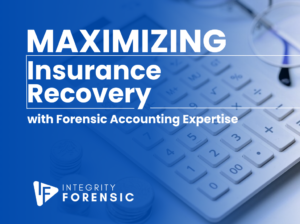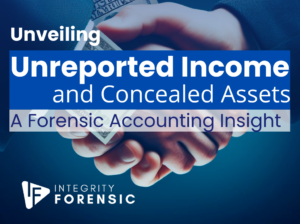Bankruptcy fraud is a serious financial crime that can have devastating consequences for individuals and businesses. It occurs when someone attempts to abuse the bankruptcy process by hiding assets or income, making false statements, or otherwise engaging in fraudulent behavior. Unfortunately, bankruptcy fraud is more common than many people realize, and it can be difficult to detect without the help of a trained forensic accountant. In this blog post, we’ll explore how forensic accounting can be used to investigate bankruptcy fraud, and why it’s such an important tool for protecting the integrity of the bankruptcy system.
In a bankruptcy fraud investigation, a forensic accountant can help identify suspicious transactions and hidden assets, determine the extent of fraud, and provide evidence for legal action against the perpetrator. Some common indicators of bankruptcy fraud include intentionally concealing assets, filing false or incomplete financial statements, and transferring assets to family members or business associates before filing for bankruptcy.
A forensic accountant can use various tools and techniques to uncover fraudulent activity in a bankruptcy case. For example, they may perform a deep dive into the debtor’s financial records, including bank statements, tax returns, and credit reports, to identify any discrepancies or inconsistencies. They may also conduct interviews with key parties, such as creditors and business associates, to gather additional information.
One effective technique used in bankruptcy fraud investigations is asset tracing. This involves following the flow of funds from the debtor to various entities and individuals, often through complex financial transactions. By tracing the movement of assets, a forensic accountant can identify any attempts to hide or transfer assets to avoid paying creditors.
Another key aspect of investigating bankruptcy fraud is the use of data analytics. A forensic accountant can use specialized software to analyze large amounts of financial data, looking for patterns or anomalies that may indicate fraudulent activity. For example, they may look for sudden spikes in revenue or expenses, transactions with related parties, or unexplained withdrawals or transfers.
Overall, the expertise of a forensic accountant can be crucial in investigating bankruptcy fraud and recovering assets for creditors. By identifying and documenting fraudulent activity, they can help ensure that the bankruptcy process is fair and just for all parties involved.
At Integrity Forensic, we have a team of experienced forensic accountants to assist you. Call now for a free consultation: 855-673-9999 or send us a message at questions@integrityforensic.com.





